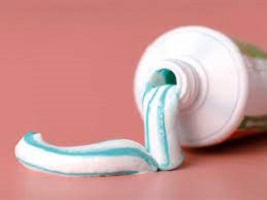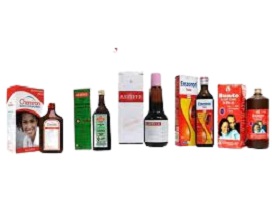How Many Calories Should You Eat Per Day
How Many Calories Should You Eat Per Day to Lose Weight?

What should my daily intake of calories be?
It is important to monitor your calorie intake in order to stay healthy.
If you’re wondering, ‘How many calories should I eat per meal to lose weight?’ this is the place to start.
We conducted research and discovered the solution. Please read on;
Table of Contents
How Many Calories Should You Eat Per Day for Fat Loss?
To lose weight, eat between 200 and 400 calories for breakfast, 500-700 calories for lunch, and 500-700 calories for dinner every day.
You should also include a morning and evening snack for an additional 400-500 calories.
To lose weight, women should consume 1500 to 2000 calories per day, while men should consume 2,500.
According to research, cutting your caloric intake by 500 calories per day will result in a one-pound weight loss.
The number of calories you should consume is determined by several factors, including age, metabolism, and activity level.
You can eat more calories if you’re active and young. Stay active as you get older; otherwise, your caloric intake will need to be reduced.
What are calories?
Calories are a unit of measurement for the amount of energy in food or drink. The amount of energy you require is determined by the following factors:
- Your age – for example, growing children and teenagers may require more energy
- Your lifestyle – such as how active you are
- Size – your height and weight can influence how quickly you use energy
Other factors can also have an impact on how much energy you burn. As an example:
- Thyroid hormones and other hormones (chemicals produced by the body).
- Some medications, such as glucocorticoids, a type of steroid used to treat inflammation
- Some medications, such as glucocorticoids, a type of steroid used to treat inflammation
- Being unwell
Kilocalories and calories
The term calorie is a common abbreviation for kilocalories. On food packages, this is written as kcal.
Kilojoules (kJ) are the International System of Units’ equivalent of kilocalories, and you’ll see both kJ and kcal on nutrition labels. 4.2kJ is roughly equivalent to 1kcal.
What are the average calorie ranges for women?
Moderately physically active: A moderately active woman between the ages of 26 and 50 requires approximately 2,000 calories per day to maintain her weight.
She must reduce her calorie intake to 1,500 calories per day in order to lose one pound per week.
- Physically active women who walk more than 3 miles per day require at least 2,200 calories per day to maintain weight and at least 1,700 calories to lose 1 pound per week.
- The early twenties: Women in their twenties require more calories. They require approximately 2,200 calories per day to maintain their weight.
- Over 50: Women over the age of 50 require fewer calories. A moderately active woman over the age of 50 requires 1,800 calories per day to maintain her weight and 1,600 calories per day to lose one pound per week.
- Pregnant or breastfeeding: Because pregnant or breastfeeding women have higher calorie needs, these ranges do not apply to them.
What is the average calorie ranges for men?
- Moderately active: A moderately active man between the ages of 46 and 45 requires approximately 2,600 calories per day to maintain his weight. To lose one pound per week, he must reduce his daily calorie intake to 2,100.
- Physically active men who walk more than 3 miles per day require 2,800-3,000 calories per day to maintain weight and 2,300-2,500 calories per day to lose 1 pound per week.
- Ages 19-25: Young men aged 19 to 25 require more calories. They require an average of 2,800 calories per day to maintain their weight, and up to 3,000 if they are active. To lose one pound per week, moderately active young men should consume 2,300-2,500 calories per day.
- Ages 46-65: Men’s energy requirements decrease as they age. Men between the ages of 46 and 65 who are moderately active require an average of 2,400 calories per day. After the age of 66, their calorie requirements may be reduced to approximately 2,200 calories per day.
How to lose weight safely

While many people want to lose weight quickly, an overly strict diet and exercise regimen may not be sustainable.
Setting realistic goals is essential for achieving safe and healthy weight loss. That means gradually and steadily losing weight (about 1-2 pounds per week).
Healthy weight loss is more than just a quick fix. For weight loss benefits to last, long-term changes in daily eating and activity habits are required.
Ways to reduce calorie intake
- Start the day by drinking water
- Eat a healthy breakfast
- Eat more fiber
- Eat whole grains.
- Eat more protein and fewer carbs
- Add good fats to your diet.
- Take a power nap
- Choose healthy snacks
- Reduce salt intake
- Reduce sugar intake
- Replace sugar with honey
- Cook at home
- Steam or grill instead of frying.
- Drink coffee
- Add lemon to your water.
- Use apple cider vinegar
- Drink herbal teas.
- Reduce alcohol intake.
Talk to a licensed nutritionist before beginning a new diet plan to ensure it is safe for you, especially if you have underlying medical conditions.
Maintaining a healthy weight
Maintaining a healthy weight requires balancing the calories you consume with the amount your body uses.
Use the BMI calculator to determine your healthy weight.
To maintain a healthy weight, you must balance the calories you consume from food and drink with the calories you burn from physical activity.
What Are the Health Risks of Excess Weight?
Being overweight and obese can cause a variety of health issues, including:
- Type 2 diabetes
- Heart disease
- High blood pressure (hypertension)
- Stroke
- Sleep apnea
- Metabolic syndrome
- Osteoarthritis
- Fatty liver diseases, including nonalcoholic fatty liver disease and nonalcoholic steatohepatitis
- Gallbladder diseases, including gallstones and cholecystitis
- Kidney disease
- Some cancers
- Pregnancy problems, such as gestational diabetes, preeclampsia, and cesarean section (C-section)
- Higher risk for mental health problems such as depression
Weight loss can help reduce the risk of developing these conditions.
How Can I Determine My Ideal Weight?
To determine how many calories you need to eat each day to lose weight, you must first determine your ideal weight, which is determined by your gender, age, height, frame size, and fat and muscle proportion.
Body Mass Index (BMI) is a tool used by doctors to determine whether or not a person is overweight and to what extent. BMI is frequently used to calculate ideal weight ranges.
The BMI is calculated by multiplying the weight by the square of the height.
| BMI = body weight (in kg) ÷ height (in meters) squared | |
| BMI less than 18.5 | Below normal weight |
| The BMI 18.5 to under 24.9 | Normal weight |
| BMI 25 to under 29.9 | Overweight |
| The BMI 30 to under 34.9 | Class I Obesity |
| BMI 35 to under 39.9 | Class II Obesity |
| BMI 40 or greater | Class III Obesity |
How Many Calories Should I Consume A Day to Lose Weight? How Many Calories Should You Eat Per Day
Caloric intake is determined by your current and desired weight, gender, and level of activity.
The best way to figure this out is to consult with your doctor or a nutritionist to determine the appropriate caloric intake for you.
What Are Some Weight Loss Strategies?
Making lifestyle changes that can aid in weight loss has four major components:
Identify triggers that make you want to eat
- Write down what, where, and when you eat, and how you feel when you eat
- This helps identify triggers such as the time of day or a certain place or feelings that cause you to want to eat
- Change eating habits
- Use smaller plates
- Eat more slowly
- Add more colorful foods to meals
- Keep healthy snacks on hands such as chopped vegetables, fruits, and nuts
- Add more vegetables, fruits, whole grains, and nuts to the diet
- Avoid foods such as French fries or chips, sugar-sweetened beverages, red or processed meats, foods that contain trans fats, and processed foods
Set goals and use rewards
- Do not use food as a reward
- Reward yourself for changing unhealthy behaviors, not for pounds lost
- Rewards can include buying new clothing, getting a manicure or massage, watching a movie, or playing a game
- Small rewards each time you choose healthier options to help reinforce the healthy behavior
- Set clear goals, i.e. avoiding snacking or losing 5% of your current weight by a certain date
Add more activity into the day
- Aim for at least 150 minutes per week of moderate-intensity aerobic activity, such as brisk walking
- Add activity whenever you can: for example, take the stairs instead of the elevator or park farther from the store
Other factors that contribute to successful weight loss
- Enlist a supportive friend or family member to help reinforce healthy behavior
- Learn to avoid temptations
- Learn to say “no” when urged to eat at social gatherings
- Develop strategies for events before you go, such as eating beforehand or bringing your low-calorie snacks and calorie-free drinks
- Practice positive thinking
- If you make a mistake and eat something unhealthy, instead of thinking you’ve blown your diet, think of ways to get back on track
- Reduce stress
Weight loss
To lose weight healthily, you must expend more energy than you consume by eating a healthy, balanced diet low in calories and increasing your physical activity.
Gaining weight
If you are underweight, you should consult your doctor (your body mass index is less than 18.5).
You must consume more calories than your body consumes each day to gain weight.
People also ask on How Many Calories Should You Eat per Day
How many calories should I eat daily if I want to lose weight?
To lose at least a pound per week, aim for at least 30 minutes of physical activity on most days and a 500-calorie reduction in your daily calorie intake.
However, calorie intake should not fall below 1,200 calories per day for women or 1,500 calories per day for men unless under the supervision of a health professional.
Are 1200 calories per day sufficient for weight loss?
Many studies have shown that low-calorie diets, including 1,200-calorie diets, can help people lose weight.
A study of 2,093 obese people, for example, found that a medically supervised 1,200-calorie meal replacement diet resulted in an average fat loss of 4.7% over 12 months.
Should I consume 1500 calories per day to lose weight?
Many people who want to lose fat and improve their health will benefit from a 1,500-calorie diet.
Like any healthy diet, it should consist primarily of whole, unprocessed foods.
Excess calories should be reduced, and some of the simple tips in this article can help you succeed in your weight loss journey.
Is it possible to lose weight on 2,000 calories per day?
How do you stay full on 1,200 calories per day?
You can enjoy a variety of tasty, high-satiety, low-calorie meals with a little planning.
- Consume plenty of fiber. Fiber-rich foods fill you up faster, making you less likely to exceed your daily 1,200-calorie limit.
- Consume Water-Dense Foods.
- Eat Whole Grains
- Plan your meals and snacks.
Is it possible to gain weight by eating too little?
Eating too few calories can set off a vicious cycle of diet distress.
When you reduce your calorie intake to the point where your metabolism slows and you stop losing weight, you may become frustrated that your efforts are not paying off.
This can cause you to overeat and gain weight.
Why am I not losing weight despite eating 1200 calories per day?
You cannot lose weight while eating 1200 calories per day because you are no longer in a calorie deficit.
Your body has plateaued because it has adapted to what it has been doing.
If you begin your diet with a 500-calorie deficit per day, your body will adapt in various ways, reducing your energy requirements over time
Why am I not losing weight despite eating 1500 calories per day?
If you’re a man, a woman who weighs more than 164 pounds, or a female who regularly exercises and you’re not losing weight while eating 1,200 to 1,500 calories per day, it’s time to see a doctor.
Hormone imbalances, such as an underactive thyroid, can slow your metabolism and inhibit or prevent weight loss.
Will a 1600-calorie diet help me lose weight?
If you cut 1000 calories per day, you should lose around 2 pounds by the end of the week.
If you normally consume 2100 calories or more per day, consuming 1600 calories, which is a 500-calorie deficit from your normal intake, will promote weight loss.
How can I accelerate my weight loss?
8 Weight Loss Suggestions
- Consume a high-protein breakfast.
- Avoid sugary drinks and fruit juice.
- Keep hydrated
- Select diet-friendly foods
- Consume more fiber
- Have a cup of coffee or tea.
- Focus on whole foods in your diet.
- Consume slowly
What are some fat-burning foods?
Here are 7 healthy foods that help you burn fat.
- Fatty Fish. Fatty fish is delicious for you
- MCT Oil. Medium-chain triglycerides (MCT) oil is made by extracting MCTs from palm oil
Others include;
Coffee, eggs, green tea, whey protein, apple cider vinegar, and chili peppers
What is a 300-calorie breakfast?
For example, a 300-calorie breakfast could consist of two eggs, one slice of multigrain bread, and one large apple, totaling approximately 282 calories.
What are some examples of low-calorie breakfast foods? Eggs, egg whites, fruit and yogurt, high protein waffles, vegetable frittatas, oatmeal, and toast are all low-calorie breakfast options.
What should I eat when I’m hungry to lose weight?
In a nutshell, experts say that including more of these foods in your diet can help you feel fuller on fewer calories:
- Soups, stews, whole grains cooked, and beans.
- Fresh fruits and vegetables.
- Lean meats, fish, poultry, and eggs.
- Whole grains, such as popcorn.
How many calories is the starvation mode?
If you drastically reduce your calorie intake and eat a very low-calorie diet (less than 1,000 calories for women and less than 1,200 calories for men), “starvation mode” can be starvation.
Chronic undereating can be harmful to your health and counterproductive to weight loss.
Why am I gaining weight despite eating less and exercising?
You’ve put on muscle. And here’s a little-known fact: Muscle tissue is denser than fat tissue.
As you gain muscle and lose fat, your overall body composition changes, resulting in a higher weight but a smaller figure and better health.
Is it possible to lose weight by eating less and not exercising?
You can lose weight by eating less, but increasing your physical activity burns more calories than dieting alone.
Any weight-loss program that includes regular exercise is not only more effective but also healthier.
You can strengthen your bones, muscles, and heart by eating a healthy diet and exercising.
Is 1200 calories too low for a woman?
Larger people, men, active people, breastfeeding or pregnant women, and people with certain medical conditions typically require more calories per day than others.
A 1,200-calorie diet is usually safe and potentially effective for those who need fewer calories.
How long can you do a 1200-calorie diet?
It gives you more leeway with your daily calorie budget.
However, using it for an extended period is tedious and stressful, so I only recommend it for 3-4 days.
“How long will it take to lose weight on a 1200-calorie diet?”
And, of course, everyone’s metabolism differs slightly.
However, the average weight loss on the 1200-calorie diet is one to two pounds per week.
How many calories should I consume to lose weight?
Calorie Calculator:
This calorie calculator calculates how many calories you need each day to maintain, lose, or gain weight.
Learn about the different types of calories and their effects.
How many calories should a woman consume per day to lose weight?
You should consume approximately 1,500 calories per day to lose one pound of weight per week.
Active women who walk more than 3 miles per day require at least 2,200 calories per day to maintain their weight.
You should consume approximately 1,700 calories per day to lose one pound of weight per week.
How many calories should a woman consume per day to lose two pounds per week?
If she wanted to lose 1 pound per week, she could aim for 1700 calories per day. 2500 calories minus 500 calories per day equals 2000 calories.
She could aim for 1500 calories per day if she wanted to lose 2 pounds per week. 2500 calories minus 1000 calories per day equals 1500 calories.
How many calories should I eat per day?
In general, women should consume 2,000 calories per day, while men should consume 2,500.
How many calories should I eat a day by age?
Estimated Calorie Requirements
| Gender | Age (years) | Sedentary |
| Child | 2-3 | 1,000 |
| Female | 4-8 9-13 14-18 19-30 31-50 51+ | 1,200 1,600 1,800 2,000 1,800 1,600 |
| Male | 4-8 9-13 14-18 19-30 31-50 51+ | 1,400 1,800 2,200 2,400 2,200 2,000 |
How many calories must I burn to lose weight?
In general, if you cut 500 calories per day from your normal diet, you can expect to lose 12 to 1 pound per week.
However, this can vary depending on your body, how much weight you want to lose, your gender, and your level of activity.
How many calories should I burn a day?
According to the Dietary Guidelines for Americans 2020-2025, the average adult woman burns approximately 1,600 to 2,400 calories per day,
while the average adult man burns approximately 2,000 to 3,000 calories per day.
Is it healthy to burn more than 500 calories per day?
Yes, burning 500 calories per day is sufficient for a reasonable weekly weight loss. To lose one pound of fat, you must burn 3500 calories.
How many calories should I eat a day to gain weight?
To gain weight, you must consume more calories than your body expends.
Aim for 300-500 calories per day more than your maintenance level for slow weight gain, or 700-1,000 calories for quick weight gain.
How many calories do I need to consume per day to gain weight?
A 500 to 1000-calorie increase per day will result in a one to two-pound weight gain per week.
Gaining one pound of body weight requires an additional 3500 calories.
How much weight will I gain if I consume 3000 calories?
If you consume 2500 calories per day for maintenance, 3000 calories per day could help you gain 1 pound per week.
On average, you will gain 1 pound of muscle for every 3000 calories you consume above your maintenance level.
How can a thin person gain weight quickly?
Instead of two or three large meals, eat five to six smaller meals throughout the day. Choose foods that are high in nutrients.
Choose whole-grain bread, pasta, and cereals as part of a healthy diet, as well as fruits and vegetables, dairy products, lean protein sources, and nuts and seeds.
Smoothies and shakes are great options.


